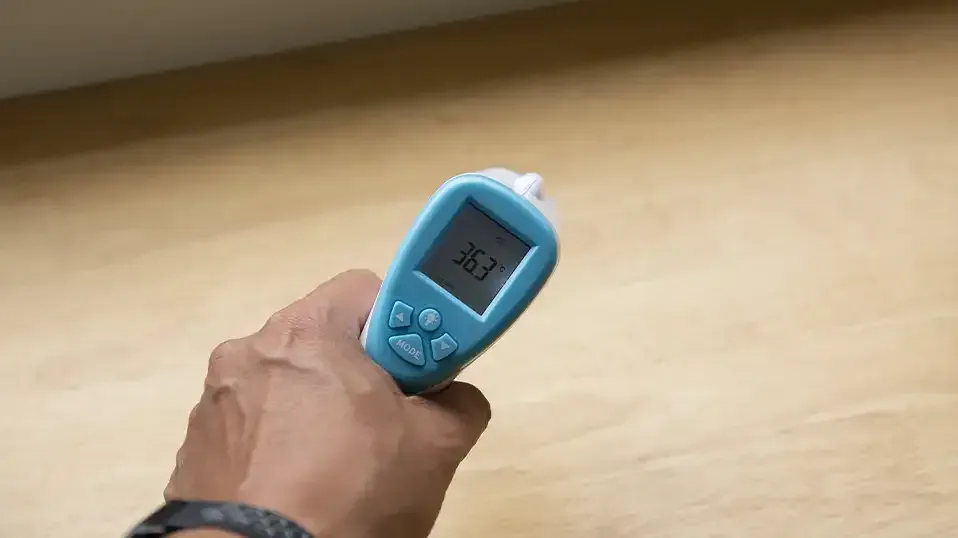Welcome to Our Blog
Insights and tips to keep your living environment safe and healthy.

Expert Air Quality Testing in Santa Barbara : Breathe Cleaner Air
Winter vs. Summer: How Seasonal Changes Affect Your Home’s Air Quality
The air inside your home changes just like the weather outside. You may not see it, but the difference between winter and summer air quality is real. In winter, you keep your windows shut tight, trapping dust and allergens. In summer, the air might feel fresher, but humidity and outdoor pollution can sneak inside.
So, what exactly happens to your home’s air in different seasons? Let’s break it down in a way that is easy to understand.
Winter Air: Trapped and Stale
When winter rolls in, most people turn up the heat and seal their homes to stay warm. While that keeps out the cold, it also keeps in a lot of things you would rather not breathe.
Less Ventilation: Since windows and doors stay closed, fresh air does not come in, and stale air stays trapped. This means dust, pet dander, and even chemicals from cleaning products build up inside.
Dry Air: Heaters pull moisture out of the air, making it dry. This can cause dry skin, sore throats, and even breathing issues. Dry air also makes dust float around more easily.
More Allergens: Dust mites and mold spores love warm, dry places. Without proper ventilation, they multiply quickly, making allergy symptoms worse.
Carbon Monoxide Risk: Gas heaters, fireplaces, and stoves produce carbon monoxide, a gas that can be dangerous if it builds up indoors.
Summer Air: Fresh but Humid
In summer, people open their windows to let fresh air inside. This can help with ventilation, but summer has its own air quality challenges. If you live in a coastal area, an air quality test in Santa Barbara can help you understand what is floating around in your indoor air.
More Humidity: Warm air holds more moisture, which can make your home feel sticky. High humidity can also lead to mold growth, which is bad for breathing.
More Pollen: If you suffer from allergies, summer can be rough. Pollen from trees, grass, and flowers can enter your home through open windows and stick to clothes and furniture.
Air Conditioning Issues: Air conditioners help cool your home, but they can also trap dust and bacteria in their filters. If not cleaned regularly, they can spread dirty air.
Outdoor Pollution: Summer heat increases air pollution. Smoke, car fumes, and industrial chemicals mix with the warm air, creating smog. If you live in a busy city, this polluted air can enter your home.
How to Keep Your Air Clean All Year

No matter the season, you can take simple steps to improve your home’s air quality. Here are a few easy ways to keep your air fresh:
Use Air Purifiers: These devices help remove dust, pollen, and even bacteria from the air. Learn More about ActivePure Technology.
Clean Your Filters: Whether it is your heater in winter or your air conditioner in summer, clean or replace the filters regularly.
Let in Fresh Air: Open your windows for a short time to get rid of stale air.
Control Humidity: In winter, use a humidifier to add moisture. In summer, a dehumidifier can help keep the air dry.
Vacuum and Dust Often: Keeping your home clean reduces the buildup of dust and allergens.
Check for Mold: Look for damp areas in bathrooms, basements, and around windows where mold might grow.
Be Careful with Chemicals: Cleaning sprays, air fresheners, and scented candles can release harmful chemicals. Choose natural alternatives when possible.
Final Words
Each season brings different air quality challenges, but with a few simple steps, you can keep your home fresh and healthy. Whether it is battling dry winter air or keeping summer humidity in check, a little effort goes a long way.
Taking care of your home’s air is just like taking care of yourself. Breathe easy, and enjoy every season with clean, fresh air inside your home.
Copyright @ 2025 - All rights reserved
Advanced Clean Air Solutions, LLC
351 Paseo Nuevo 2nd Floor #1033
SANTA BARBARA, CA 93101

